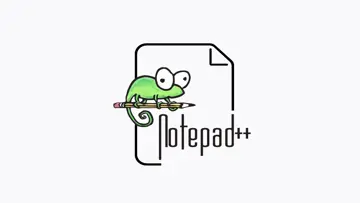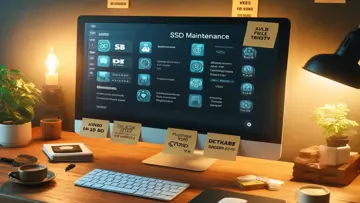Rust: A Secure and Reliable Systems Programming Language
Rust is a powerful systems programming language known for its speed, memory safety, and fearless concurrency.
Rust by Mozilla Foundation
Rust is a powerful, multi-paradigm system programming language developed by Mozilla Foundation. With a strong focus on safety, performance, and concurrency, Rust has gained popularity among developers for its ability to provide memory safety without sacrificing performance.
One of the key features of Rust is its ownership system, which allows for better management of memory resources by enforcing strict rules at compile time. This helps prevent common pitfalls such as null pointer dereferencing, dangling pointers, and data races.
Developers also appreciate Rust's expressive type system, which helps catch errors at compile time rather than runtime. This leads to more robust and reliable code that is less prone to bugs and crashes.
Key Features of Rust:
- Memory safety without garbage collection
- Concurrency without data races
- Zero-cost abstractions
- Pattern matching
- Trait-based generics
Rust's performance is another major highlight, as it compiles to highly optimized native code. This makes it suitable for a wide range of applications where speed and efficiency are crucial, such as operating systems, game engines, and web browsers.
Furthermore, Rust has a thriving ecosystem with a package manager called Cargo, which simplifies dependency management and project build processes. Developers can easily find and use libraries from the official repository to extend the functionality of their Rust projects.
Whether you are a seasoned developer looking for a language that prioritizes safety and performance or a newcomer interested in systems programming, Rust offers a compelling option worth exploring.
Overview
Rust is a Open Source software in the category Games & Entertainment developed by Mozilla Foundation.
The users of our client application UpdateStar have checked Rust for updates 126 times during the last month.
The latest version of Rust is 2017.1.2.34239, released on 01/16/2018. It was initially added to our database on 07/05/2012.
Rust runs on the following operating systems: Android/iOS/Windows/Mac.
Users of Rust gave it a rating of 3 out of 5 stars.
Pros
- Fast and efficient performance due to its emphasis on low-level control and zero-cost abstractions.
- Strong focus on safety, providing memory safety, data race freedom, and preventing null pointer dereferencing.
- Rich ecosystem of libraries and tools available through Cargo, the Rust package manager.
- Cross-platform support on Windows, macOS, and Linux.
- Active community with regular updates and improvements.
- Integrated testing and documentation tools to promote good coding practices.
- Sophisticated error handling system using Result and Option types for more robust and reliable code.
Cons
- Steep learning curve for developers new to systems programming or the borrow checker concept.
- Strict compiler rules can lead to frustration for beginners when working with borrowed references and lifetimes.
- Smaller talent pool compared to mainstream languages like C++ or Java, which can limit community support or available resources.
- Longer compilation times compared to some other languages, especially for larger projects.
FAQ
What is Rust?
Rust is a systems programming language that runs blazingly fast, prevents segfaults, and guarantees thread safety.
Who created Rust?
Rust was created by Mozilla Research in 2010.
What kind of projects can be built with Rust?
Rust is suitable for building a wide range of projects, including command-line tools, web servers, systems utilities, and game engines.
What are the benefits of using Rust?
Some key benefits of Rust include its performance, memory safety, and thread safety.
Is Rust difficult to learn?
While Rust has a steeper learning curve than some other programming languages, there are many resources available to help new users get started and become proficient.
What platforms does Rust run on?
Rust can compile to native code on a wide variety of platforms, including Windows, macOS, Linux, and many others.
Is Rust open source?
Yes, Rust is open source and developed in the open on GitHub.
What is the current stable release of Rust?
As of October 2021, the current stable release of Rust is version 1.55.0.
Is Rust being actively developed?
Yes, Rust has a large and active development community and new releases are regularly published.
Does Rust have garbage collection?
No, Rust does not have garbage collection. Instead, Rust uses a system of ownership and borrowing to manage memory.

Peter Salakani
I'm Peter, a software reviews author at UpdateStar and content specialist with a keen focus on usability and performance. With a background in both software development and content creation, I bring a unique perspective to evaluating and discussing general software topics. When I'm not reviewing software, I enjoy staying updated on the latest tech trends, experimenting with new applications, and finding innovative solutions to everyday tech challenges.
Latest Reviews by Peter Salakani
- Unlock Limitless Creativity with Native Instruments Evolve R2
- Ciel ! compta 2010: Streamlined Accounting for Small Businesses
- Boost Your Productivity with SideSlide: The Ultimate Information Management Tool
- Realistic Hunting Experience with Stunning Landscapes
- An Unflinching Journey Through Alternate History
Installations
Latest Reviews
|
Parkan
Parkan: An Emblem of Space Exploration |
|
|
|
TAP-Windows
Secure Your Connection with TAP-Windows! |
|
|
EPSON XP-100 Series Printer Uninstall
Efficiently Remove EPSON XP-100 Series Printer Software |
|
|
Epson Data Collection Agent
Efficient Data Collection with Epson Data Collection Agent |
|
|
EpsonNet Config SE
Streamline Your Printer Management with EpsonNet Config SE |
|
|
Epson Benutzerhandbuch Epson Perfection Photo
Comprehensive Guide for Epson Perfection Photo Users |
|
|
UpdateStar Premium Edition
Keeping Your Software Updated Has Never Been Easier with UpdateStar Premium Edition! |
|
|
Microsoft Edge
A New Standard in Web Browsing |
|
|
Microsoft Visual C++ 2015 Redistributable Package
Boost your system performance with Microsoft Visual C++ 2015 Redistributable Package! |
|
|
Google Chrome
Fast and Versatile Web Browser |
|
|
Microsoft Visual C++ 2010 Redistributable
Essential Component for Running Visual C++ Applications |
|
|
Microsoft OneDrive
Streamline Your File Management with Microsoft OneDrive |





